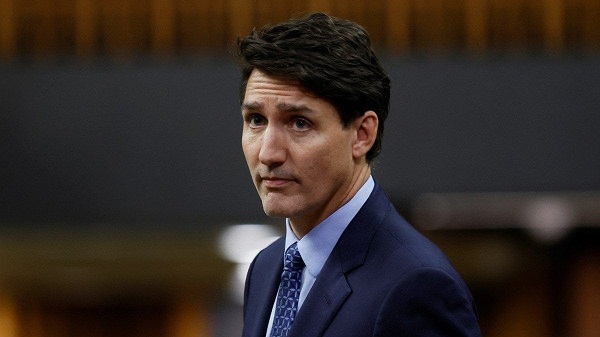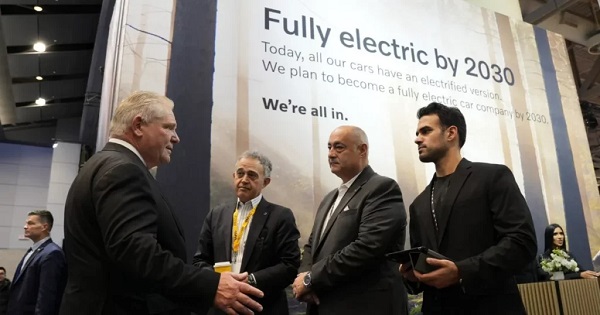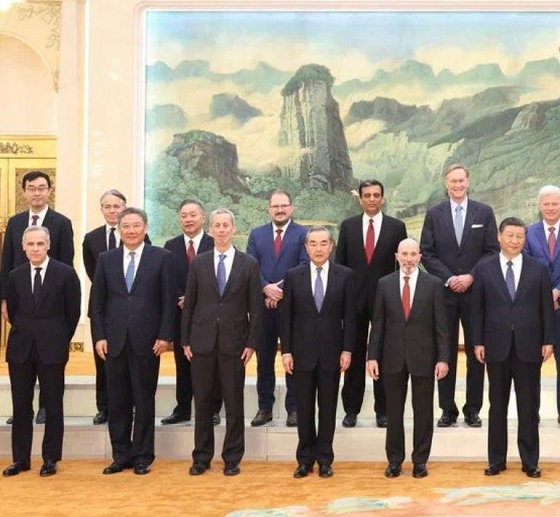Alberta
Deirdra Dionne one of 14 to be inducted to Alberta Sports Hall of Fame

Alberta Sports Hall of Fame Introduces 2020 Inductees
Red Deer claims Deidra Dionne as their own, and so they should. Her skiing career took off – literally – when she moved with her family to the city in 1982 and joined the Red Deer Freestyle Club at Canyon Ski Resort. It wasn’t long before she began excelling on a provincial, national, and eventually, international stage.
“We are proud to welcome these new Honoured Members into the Hall,” said Kinsella. “Their contributions to sport in our province are incredible and humbling. They have truly earned the right to have their names added to our Hall.” – Tracey Kinsella, Executive Director, Alberta Sports Hall of Fame. On May 29th, an induction banquet and ceremony will be held at the Cambridge Red Deer Hotel and Conference Centre where this group will officially be welcomed into the Alberta Sports Hall of Fame. Included are five athletes, four builders and five award winners.
The newest athletes joining the Alberta Sports Hall of Fame are:
Deidra Dionne (Athlete, Skiing); Bronze medalist in women’s aerials at the 2002 Salt Lake City Winter Olympics.
Chris Phillips (Athlete, Hockey): A stay-at-home defenceman and the longest-serving player in Ottawa Senators franchise history.
Kelly Sutherland (Athlete, Chuckwagon Racing): Twelve-time Calgary Stampede Rangeland Derby Championships, and seven Calgary Stampede Aggregate titles.
Michael Robertson (Athlete, Snowboardcross): Silver medalist at the 2010 Vancouver Winter Olympics. This year’s builders include:
Jan Ullmark (Builder, Figure Skating): Jan is an elite coach whose skills have made an indelible mark on the sport of figure skating in Canada.
Terry Morris (Builder, Curling): Terry has been active in the promotion and development of the sport of curling in Alberta and across the nation for the better part of four decades.
Ken Babey (Builder, Hockey): In his nearly three decades behind the bench of the Southern Alberta Institute of Technology (SAIT) Trojans men’s hockey team, Ken Babey guided the team to unparalleled success.
Derek Douglas (Builder, Soccer): The first soccer referee from Alberta to attain the position of FIFA International Referee in 1986, Derek has also been instrumental in growing the game in Sherwood Park, Edmonton and throughout the province.
This year’s Award winners are:
Nancy Southern & Ian Allison (Bell Memorial Award): As the team who pioneered equestrian sport broadcasting in Alberta, they are the first duo to be awarded the Bell Memorial Award.
John Currie (Achievement Award): As president of the 1983 Western Canada Summer Games, John led the development and funding of the game’s flagship facility – the Repsol Sport Centre.
Stan Wakelyn (Pioneer Award, Soccer): In 1922, Calgary Hillhurst FC won the Dominion of Canada Football Championship, with Stan, a centre forward, as team captain.
Dennis Kadatz (Legacy Award): At 22, Dennis guided the Edmonton Huskies Junior Football Team to three consecutive Canadian Championships in 1962, 1963 and 1964. In 1964, Dennis became head coach of the University of Calgary’s fledgling football program.
For more information, please contact Tracey Kinsella, Alberta Sports Hall of Fame Executive Director, at (403) 341-8614 or via email at [email protected].
Detailed bios of each athlete:
Deidra Dionne –Skiing Athlete

Deidra Dionne was a trailblazer for today’s athletes competing in the sport of freestyle skiing in Canada. Born in North Battleford, Saskatchewan, Deidra’s skiing career took off – literally – when she moved with her family to Red Deer in 1982 and joined the Red Deer Freestyle Club at Canyon Ski Resort. It wasn’t long before she began excelling on a provincial, national, and eventually, international stage. Her accomplishments are exceptional: silver at the 2008 Canadian Freestyle Championships, 2000 World Cup Freestyle Rookie of the Year, bronze medals at both the 2001 and 2003 World Championships, and a bronze medal in women’s aerials at the 2002 Salt Lake City Winter Olympics. Despite breaking her neck in a training accident in September 2005, Deidra battled back to compete at the 2006 Turin Olympics.
Chris Phillips – Hockey Athlete

Calgary’s Chris Phillips began his junior hockey career at the age of 15 with the Fort McMurray Oil Barons of the Alberta Junior Hockey League (AJHL), before joining the Western Hockey League’s (WHL) Prince Albert Raiders in time for the 1995-96 season. In 61 games with the Raiders, Chris scored 10 goals and added 30 assists on his way to winning Jim Piggott Memorial Trophy as the league’s top rookie. Midway through the 1996-97 season, the Raiders traded Chris to the Lethbridge Hurricanes, where he helped lead the Hurricanes to the Memorial Cup Final, which they lost to the Hull Olympique. Chris won two gold medals as a member of Canada’s World Junior Hockey Team in both 1996 and 1997. Chris was drafted first overall by the Ottawa Senators at the 1996 NHL Entry Draft, and would spend his entire NHL career with the team. Chris began his career during the 1997–98 season and retired following the 2015–16 season, after spending the entire season on the injured list. A stay- at-home defenceman, Chris played 1,179 games with Ottawa in the regular season and playoffs, making him the longest-serving player in Senators franchise history. During his NHL career, Chris scored 71 goals to go along with 217 assists.
Kelly Sutherland – Chuckwagon Racing Athlete

You have to look no further that Kelly Sutherland’s nickname to understand the impact he had on his chosen sport of chuckwagon racing: “The King.” He was racing at the age of 14, driving by the age of 16, and winning at the age of 22. With a career that spanned five decades, Kelly remains one of the most important influences in the sport’s history. He won an astounding 12 world championships – his first in 1974 and his final one in 2011 at the age of 60. Kelly is perhaps best known for his success at the Calgary Stampede. Over the course of his career, he won 12 Calgary Stampede Rangeland Derby Championships, and seven Calgary Stampede Aggregate titles. He also won nine Ponoka Stampede titles and one in his hometown of Grande Prairie. In 2010, Kelly was the first torchbearer of day eight of the 2010 Vancouver Olympic Winter Games torch relay and in 2011 he shared the sport with Prince William and Catherine, Duke and Duchess of Cambridge, during their visit to the Calgary Stampede. Kelly retired from racing in 2017. In his 48 seasons behind the reins, he placed in the top 10 overall 41 times.
Michael Robertson – Snowboardcross Athlete

Michael Robertson was always a gifted athlete – he played hockey and soccer from the
age of five before transitioning to competitive snowboarding at the age of 13. A member of a small team from Rabbit Hill Snow Resort, just south of Edmonton, Mike became provincial champion in his age group at the age of 14. Two years later, he transitioned to the sport of snowboardcross, where his competitive nature and dedication to his chosen craft, allowed him to quickly excel at the sport. Michael joined the National Development Team at 17 before progressing to the National Team, where he would remain until his career was cut short by injuries at the age of 27. During his career on the World Cup tour, Michael was often in the top 10, earning two silver and one bronze medal along the way. Heading into the 2010 Vancouver Winter Olympics, Michael was ranked fifth on the tour. In his semi-final, Michael avoided an early collision involving the other three competitors to run away with the race. In the final, Michael got out to the early lead and held it until Seth Wescott caught him at the second last turn to deny him the gold. Since his retirement, Michael has coached a number of Alberta snowboardcross teams, the National Para Olympic team, and acts as an ambassador to Kidsport.
Jan Ullmark – Figure Skating Builder

Since arriving in Alberta in 1973, Jan Ullmark and his elite coaching skills have made an indelible mark on the sport of figure skating in Canada. As the Director of Skating at Edmonton’s Royal Glenora Club, Jan elevated the club to prominence as one of the country’s top training centres. Under his tutiledge, the club began to consistently produce national and international competitors. Among the athletes who benefited from his guidance were Michael Slipchuk, who won the 1992 Canadian Championship; Jane Gray; as well as the team of Jaime Sale and David Pelletier, who went on to win gold in pairs figure skating at the 2002 Salt Lake City Winter Games. With his induction into the Alberta Sports Hall of Fame, Jan joins his former proteges Slipchuk, Sale and Pelletier as an honoured member. For the past 20 years, Jan and his wife, Cynthia, have hosted a skating camp in Canmore which welcomes skaters from across the province to train under their guidance.
Terry Morris – Curling Builder

Terry has been active in the promotion and development of the sport of curling in Alberta and across the nation for the better part of four decades. During that time, most of Terry’s exploits have flown under the radar, including his efforts to unite the sport’s governance structure which led to the establishment of the Alberta Curling Federation, as well as the Northern Alberta Curling Association. His incredible administrative and organizational skills allowed Terry to play an integral role on the organizing committees of every major curling event held in Edmonton since 1987, including the 1987 Brier, the 1999 Brier, and the 2005 Brier – the largest and most successful Brier in its history. He has also played an important role in the success of the 2007 Ford World Men’s Curling Championship, and the 2009 Tim Hortons Roar of the Rings Canadian Curling Trials. Today, Terry continues to work with as an event manager with Curling Canada.
Ken Babey – Hockey Builder

In his nearly three decades behind the bench of the Southern Alberta Institute of Technology (SAIT) Trojans men’s hockey team, Ken Babey guided the team to unparalleled success on and off the ice while becoming the most successful coach in Canadian post-secondary hockey history. From 1987-2014, Ken picked up a total of 534 regulation and playoff wins, nine Alberta Colleges Athletic Conference (ACAC) championships, seven ACAC Coach of the Year awards, one Canadian College Athletic Association (CCAA) title (2000), and two CCAA silver medals (1992 and 1997). He also set over 15 ACAC career coaching records.
In June 2014, Ken announced he was stepping down as the Trojans coach, walking away with a career winning percentage of .681. Following a brief retirement, Ken was recruited to step behind the bench of the national men’s para ice hockey (previously known as sledge hockey) team. It didn’t take long for him to make his mark – the team took back-to-back silver medals at the world championships in 2015 and 2016 before winning gold at the 2017 championships in South Korea. At the 2018 Paralympic Winter Games in PyeongChang,
Ken led Team Canada to the gold medal game, where they lost 2-1 to the United States in overtime. Ken was previously inducted into the Alberta Hockey Hall of Fame in 2015.
Derek Douglas – Soccer Builder

Derek Douglas was born in Edinburgh, Scotland in 1942 with a love of football – a love he brought with him when he immigrated to Canada with his family in 1957. In his family’s adopted hometown of Vancouver, BC, Derek would hone his goaltending skills playing on teams alongside his brothers. In 1973, Derek was relocated to Edmonton for work, settling in Sherwood Park with his young family. As soccer was so new in the growing community, Derek and his wife found roles as coaches with their children’s teams. Derek also began officiating soccer that same year, and would serve two terms as president of the Sherwood Park District Soccer Association between 1975 – 1979. In 1981, Derek’s hard work and dedication to the sport were recognized when he was promoted to the position of National Soccer Referee. By 1982, Derek was officiating professional soccer games in the North American Soccer League, while also maintaining his commitments to soccer in his home community. In 1986, Canada Soccer promoted Derek to the top position a soccer official can become: a FIFA International Referee, the first one from Alberta. In an officiating career that lasted from 1981-2000 at the national and international level, Derek officiated games across North and Central America. Following the 1996 Atlanta Summer Olympics, Derek shifted his focus to the development of female soccer officials locally, nationally, and internationally. At the age of 75, he continues to grow the sport locally as a part-time referee coordinator in Sherwood Park.
Nancy Southern & Ian Allison – Bell Memorial Award
As the team who pioneered equestrian sport broadcasting in Alberta, Nancy Southern
and Ian Allison are the first duo to be awarded the Bell Memorial Award. Since opening in southwest Calgary in 1975, Spruce Meadows has raised the profile of show jumping on a provincial, national and global level. Nancy and Ian helped develop the first digital TV studio in 1990, which was quite progressive at the time. Before opening the studio, Nancy and Ian spent as much time as they could learning from the experts. During the 1988 Calgary Winter Olympics, the duo had the opportunity to shadow a number of ABC Television producers. The next year, Nancy attended the Electronic Festival in Cannes as a guest of ABC. She used her time to learn about the necessities to build a top-flight studio. In the studio’s early years it attracted the attention of CTV’s Wide World of Sports, which televised Spruce Meadows’ Grand Prix. This led to the “Spruce Meadows Today” series, which aired on the network for 25 years. Ian, “the Voice of Spruce Meadows,” lends his talents to the CBC broadcast team covering the Spruce Meadows events, and was the colour commentator for the show jumping events at the 2016 Summer Games in Rio de Janeiro, Brazil. He was also the co-announcer at the 2017 World Equestrian Games in Normandy, France. Today, Spruce Meadows Television Production Unit produces over 130 hours of programming for distribution in over 110 countries worldwide.
John Currie – Achievement Award
John Currie’s vision and dedication to Alberta amateur sport is unquestioned. John was a pivitol figure as president of the 1983 Western Canada Summer Games in Calgary, helping in the development and funding of the game’s flagship facility – the Repsol Sport Centre (previously known as Lindsay Park Sports Centre and then Talisman Centre). At the time it was constructed, the RSC was the largest multi-sport complex of its kind in Canada. During the games, over 2,500 athletes from the four western provinces and the Northwest Territories competed in 23 summer Olympic sports. Since then, the centre has been the training ground for countless amateur athletes, as well as numerous Olympic and Paralympic athletes. John commitment to amateur sport in Calgary and throughout Alberta allowed him to lend his expertise to countless boards and foundations, including the Alberta Sports Hall of Fame and Museum. The John Currie Amateur Sports Legacy Fund, a lasting legacy of the games, has awarded bursaries to over 100 amateur athletes since 2013.
Stan Wakelyn – Pioneer Award
If you are a successful soccer player in Alberta, you can trace some of that success back to Stan Wakelyn. Born in Sunderland, England, Stan moved to Calgary at the age of 15 and remained there until his death in 1976. Throughout the 1910’s and 1920’s, Stan, three of his brothers, and his father were members of the storied Calgary Hillhurst FC Soccer Club. Stan’s time with the club was interrupted during World War I, where he served alongside five of his brothers. In 1922, Calgary Hillhurst FC won the Dominion of Canada Football Championship, with Stan, a centre forward, as team captain. It was the only time in the championship’s first 60 years that it was won by a team hailing from Alberta. From 1922-24, Stan guided Hillhurst to three straight Bennett Shield provincial titles. He also played on a Calgary all-star team that faced off against a number of international teams from England and Scotland that were touring Canada. Stan worked for Canada Post for 38 years and was also a member
of the Royal Canadian Legion No. 1 Branch. In 1950, Stan was a finalist for the Canadian Press Best in 50 Years Footballers; in 2012, as part of the Canadian Soccer Association’s Centennial, Stan was honoured as one of the country’s top 100 Men’s Footballers; and in 2018 he was elected to the Canada Soccer Hall of Fame.
Dennis Kadatz – Legacy Award
Raised on his family’s farm southeast of Edmonton, Dennis played football at the University of Alberta while pursuing his Bachelor’s of Physical Education. At 22, Dennis became the head coach on the Edmonton Huskies Junior Football Teams, guiding them to three consecutive Canadian Championships in 1962, 1963 and 1964. At the 1965 Canadian championship, the Huskies narrowly missed a fourth national title, losing 2-1. In 1964, Dennis’ legacy on the gridiron would be cemented when he was hired as head coach by the University of Calgary to help launch their fledgling football program, a role he would hold until 1968. Dennis was appointed as U of C’s first Athletic Director in 1966 and would remain in that position until 1985. He would also add the title of Associate Dean in the Faculty of Eduction in 1980, where he oversaw the design of both Jack Simpson Gym and the Olympic Oval. In 1985, Dennis was recruited to oversee another group in its infancy – the Calgary Olympic Development Association. First as general manager (1985-1992) and then as president (1992-1999), Dennis grew CODA into the most-successful post-Olympic organization in the world. Dennis was previously inducted into the Alberta Sports Hall of Fame in 2005 as a member of the 1962-1964 Edmonton Huskies and in 2010 with the 1983-85 University of Calgary Dinos.
Click for stories and videos of some of the recent inductees into the Alberta Sports Hall of Fame.
For more information about the Alberta Sports Hall of Fame, click here.
2025 Federal Election
The High Cost Of Continued Western Canadian Alienation

From EnergyNow.Ca
By Jim Warren
Energy Issues Carney Must Commit to if He Truly Cares About National Cohesion and be Different From Trudeau
If the stars fail to align in the majority of Western Canada’s favour and voters from Central Canada and the Maritimes re-elect a Liberal government on April 28, it will stand as a tragic rejection of the aspirations of the oil producing provinces and a threat to national cohesion.
As of today Mark Carney has not clearly and unequivocally promised to tear down the Liberal policy wall blocking growth in oil and gas exports. Yes, he recently claimed to favour energy corridors, but just two weeks earlier he backtracked on a similar commitment.
There are some promises Carney hopefully won’t honour. He has pledged to impose punitive emissions taxes on Canadian industry. But that’s supposedly alright because Carney has liberally sprinkled that promise with pixie dust. This will magically ensure any associated increases in the cost of living will disappear. Liberal wizardry will similarly vaporize any harm Carbon Tax 2.0 might do to the competitive capacity of Canadian exporters.
Carney has as also promised to impose border taxes on imports from countries that lack the Liberals’ zeal for saving the planet. These are not supposed to raise Canadians’ cost of living by much, but if they do we can take pride in doing our part to save the planet. We can feel good about ourselves while shopping for groceries we can’t afford to buy.
There is ample bad news in what Carney has promised to do. No less disturbing is what he has not agreed to do. Oil and gas sector leaders have been telling Carney what needs to be done, but that doesn’t mean he’s been listening.
The Build Canada Now action plan announced last week by western energy industry leaders lays out a concise five-point plan for growing the oil and gas sector. If Mark Carney wants to convince his more skeptical detractors that he is truly concerned about Canadian prosperity, he should consider getting a tattoo that celebrates the five points.
Yet, if he got onside with the five points and could be trusted, would it not be a step in the right direction? Sure, but it would also be great if unicorns were real.
The purpose of the Build Canada Now action plan couldn’t be much more clearly and concisely stated. “For the oil and natural gas sector to expand and energy infrastructure to be built, Canada’s federal political leaders can create an environment that will:
1. Simplify regulation. The federal government’s Impact Assessment Act and West Coast tanker ban are impeding development and need to be overhauled and simplified. Regulatory processes need to be streamlined, and decisions need to withstand judicial challenges.
2. Commit to firm deadlines for project approvals. The federal government needs to reduce regulatory timelines so that major projects are approved within 6 months of application.
3. Grow production. The federal government’s unlegislated cap on emissions must be eliminated to allow the sector to reach its full potential.
4. Attract investment. The federal carbon levy on large emitters is not globally cost competitive and should be repealed to allow provincial governments to set more suitable carbon regulations.
5. Incent Indigenous co-investment opportunities. The federal government needs to provide Indigenous loan guarantees at scale so industry may create infrastructure ownership opportunities to increase prosperity for communities and to ensure that Indigenous communities benefit from development.”
As they say the devil is often in the details. But it would be an error to complicate the message with too much detail in the context of an election campaign. We want to avoid sacrificing the good on behalf of the perfect. The plan needs to be readily understandable to voters and the media. We live in the age of the ten second sound bite so the plan has to be something that can be communicated succinctly.
Nevertheless, there is much more to be done. If Carney hopes to feel welcome in large sections of the west he needs to back away from many of promises he’s already made. And there are many Liberal policies besides Bill C-69 and C-48 that need to be rescinded or significantly modified.
Liberal imposed limitations on free speech have to go. In a free society publicizing the improvements oil and gas companies are making on behalf of environmental protection should not be a crime.
There is a morass of emissions reduction regulations, mandates, targets and deadlines that need to be rethought and/or rescinded. These include measures like the emissions cap, the clean electricity standard, EV mandates and carbon taxes. Similarly, plans for imposing restrictions on industries besides oil and gas, such as agriculture, need to be dropped. These include mandatory reductions in the use of nitrogen fertilizer and attacks (thus far only rhetorical) on cattle ranching.
A good starting point for addressing these issues would be meaningful federal-provincial negotiations. But that won’t work if the Liberals allow Quebec to veto energy projects that are in the national interest. If Quebec insists on being obstructive, the producing provinces in the west will insist that its equalization welfare be reduced or cancelled.
Virtually all of the Liberal policy measures noted above are inflationary and reduce the profitability and competitive capacity of our exporters. Adding to Canada’s already high cost of living on behalf of overly zealous, unachievable emissions reduction goals is unnecessary as well as socially unacceptable.
We probably all have our own policy change preferences. One of my personal favourites would require the federal government to cease funding environmental organizations that disrupt energy projects with unlawful protests and file frivolous slap suits to block pipelines.
Admittedly, it is a rare thing to have all of one’s policy preferences satisfied in a democracy. And it is wise to stick to a short wish list during a federal election campaign. Putting some of the foregoing issues on the back burner is okay provided we don’t forget them there.
But what if few or any of the oil and gas producing provinces’ demands are accepted by Carney and he still manages to become prime minister?
We are currently confronted by a dangerous level of geopolitical uncertainty. The prospects of a global trade war and its effects on an export-reliant country like Canada are daunting to say the least.
Dividing the country further by once again stifling the legitimate aspirations of the majority of people in Alberta and Saskatchewan will not be helpful. (I could add voters from the northeast and interior of B.C., and southwestern Manitoba to the club of the seriously disgruntled.)
Alberta
Alberta’s massive oil and gas reserves keep growing – here’s why

From the Canadian Energy Centre
Q&A with Mike Verney, executive vice-president, McDaniel & Associates
New analysis commissioned by the Alberta Energy Regulator has increased the province’s natural gas reserves by 440 per cent, bumping Canada into the global top 10.
Alberta’s oil reserves – already fourth in the world – also increased by seven billion barrels.
The report was conducted by Calgary-based consultancy McDaniel & Associates. Executive vice-president Mike Verney explains what it means.
CEC: What are “reserves” and why do they matter?
Verney: Reserves are commercial quantities of oil and gas to be recovered in the future. They are key indicators of future production potential.
For companies, that’s a way of representing the future value of their operations. And for countries, it’s important to showcase the runway they have in terms of the future of their oil and gas.
Some countries that have exploited a lot of their resource in the past have low reserves remaining. Canada is in a position where we still have a lot of meat on the bone in terms of those remaining quantities.
CEC: How long has it been since Alberta’s oil and gas reserves were comprehensively assessed?
Verney: Our understanding is the last fully comprehensive review was over a decade ago.
CEC: Does improvement in technology and innovation increase reserves?
Verney: Technological advancements and innovation play a crucial role in increasing reserves. New technologies such as advanced drilling techniques (e.g., hydraulic fracturing, horizontal drilling), enhanced seismic imaging and improved extraction methods enable companies to discover and access previously inaccessible reserves.
As these reserves get developed, the evolution of technology helps companies develop them better and better every year.
CEC: Why have Alberta’s natural gas reserves increased?
Verney: Most importantly, hydraulic fracturing has unlocked material volume, and that’s one of the principal reasons why the new gas estimate is so much higher than what it was in the past.
The performance of the wells that are being drilled has also gotten better since the last comprehensive study.
The Montney competes with every American tight oil and gas play, so we’re recognizing the future potential of that with the gas reserves that are being assigned.
In addition, operators continue to expand the footprint of the Alberta Deep Basin.
CEC: Why have Alberta’s oil reserves increased?
Verney: We discovered over two billion barrels of oil reserves associated with multilateral wells, which is a new technology. In a multilateral well, you drill one vertical well to get to the zone and then once you hit the zone you drill multiple legs off of that one vertical spot. It has been a very positive game-changer.
Performance in the oil sands since the last comprehensive update has also gone better than expected. We’ve got 22 thermal oil sands projects that are operating, and in general, expectations in terms of recovery are higher than they were a decade ago.
Oil sands production has grown substantially in the past decade, up 70 per cent, from two million to 3.4 million barrels per day. The growth of several projects has increased confidence in the commercial viability of developing additional lands.
CEC: What are the implications of Alberta’s reserves in terms of the province’s position as a world energy supplier?
Verney: We’re seeing LNG take off in the United States, and we’re seeing lots of demand from data centers. Our estimate is that North America will need at least 30 billion cubic feet per day of more gas supply in the next few years, based on everything that’s been announced. That is a very material number, considering the United States’ total natural gas production is a little over 100 billion cubic feet per day.
In terms of oil, since the shale revolution in 2008 there’s been massive growth from North America, and the rest of the world hasn’t grown oil production. We’re now seeing that the tight plays in the U.S. aren’t infinite and are showing signs of plateauing.
Specifically, when we look at the United States’ largest oil play, the Permian, it has essentially been flat at 5.5 million barrels per day since December 2023. Flat production from the Permian is contrary to the previous decade, where we saw tight oil production grow by half a million barrels per day per year.
Oil demand has gone up by about a million barrels a day per year for the past several decades, and at this point we do expect that to continue, at the very least in the near term.
Given the growing demand for oil and the stagnation in supply growth since the shale revolution, it’s expected that Alberta’s oil sands reserves will become increasingly critical. As global oil demand continues to rise, and with limited growth in production from other sources, oil sands reserves will be relied upon more heavily.
-

 2025 Federal Election1 day ago
2025 Federal Election1 day agoCarney’s Cap on Alberta Energy Costing Canada Billions
-

 Community1 day ago
Community1 day agoSPARC Caring Adult Nominations now open!
-

 2025 Federal Election1 day ago
2025 Federal Election1 day agoManufacturers Endorse Pierre Poilievre for Prime Minister
-

 2025 Federal Election1 day ago
2025 Federal Election1 day agoPoilievre’s big tax cut helps working Canadians
-

 Business1 day ago
Business1 day agoPossible Criminal Charges for US Institute for Peace Officials who barricade office in effort to thwart DOGE
-

 Business1 day ago
Business1 day ago28 energy leaders call for eliminating ALL energy subsidies—even ones they benefit from
-
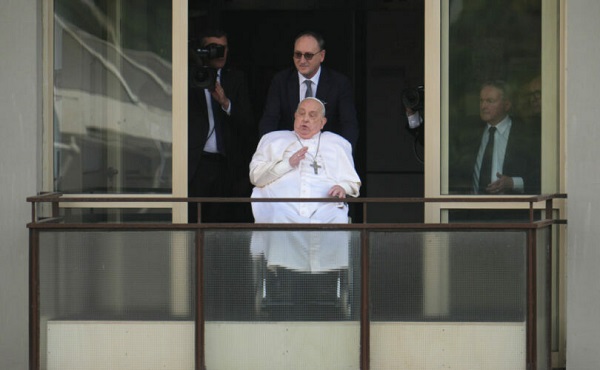
 International1 day ago
International1 day agoPope Francis appears frail as he returns to Vatican following 38-day hospital stay
-
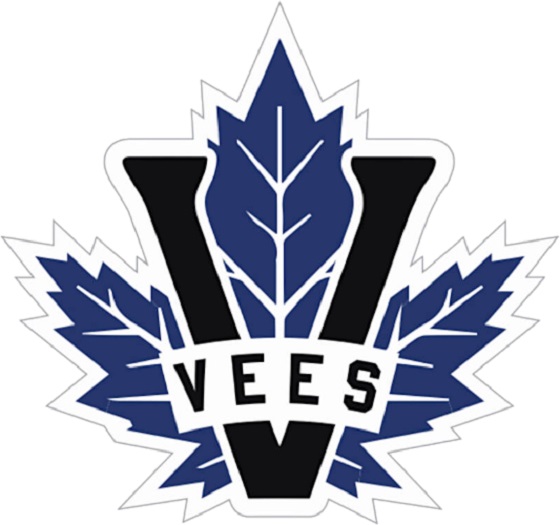
 Sports1 day ago
Sports1 day agoWHL Expands To Penticton, Launches Franchise Application Process For Chilliwack


